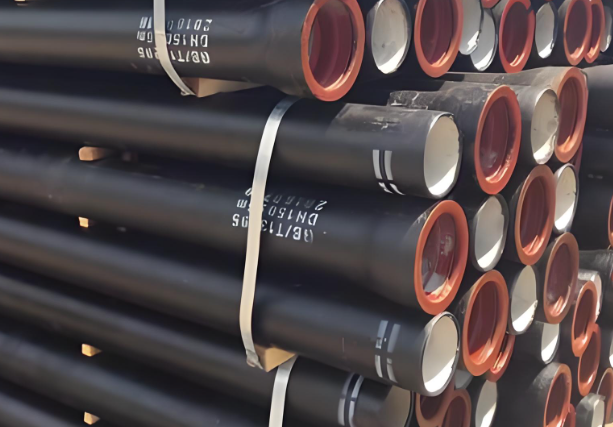Ductile iron and cast iron are both iron-carbon alloys commonly used in manufacturing, but they differ significantly in their properties and applications. Understanding these differences is crucial for selecting the appropriate material for specific engineering and industrial needs.

🔍 What Is Cast Iron?
Cast iron is a group of iron-carbon alloys with a carbon content greater than 2%. The most common type, gray cast iron, contains approximately 2.5% to 4% carbon and 1% to 3% silicon. Its graphite content forms in flakes, giving it excellent machinability and vibration damping properties. However, this flake structure also makes it brittle and prone to cracking under tensile stress.
🔧 What Is Ductile Iron?
Ductile iron, also known as nodular cast iron or spheroidal graphite iron, is a type of cast iron that has been treated with small amounts of magnesium to alter the graphite structure from flakes to spherical nodules. This modification enhances its ductility, tensile strength, and impact resistance, making it suitable for applications requiring higher strength and toughness.
⚖️ Key Differences Between Ductile Iron and Cast Iron
| Feature | Cast Iron (Gray Iron) | Ductile Iron (Nodular Iron) |
|---|---|---|
| Graphite Structure | Flake-shaped | Spherical nodules |
| Tensile Strength | Lower (100–350 MPa) | Higher (350–700 MPa) |
| Ductility | Low (brittle) | High (more flexible) |
| Impact Resistance | Poor | Excellent |
| Machinability | Good | Very good |
| Corrosion Resistance | Moderate | Better than gray iron |
| Cost | Lower | Higher due to additional alloying elements |
| Common Applications | Pipes, manhole covers, machine bases | Automotive components, heavy-duty machinery parts |
🛠️ Applications
-
Cast Iron: Ideal for applications where vibration damping and machinability are essential, such as engine blocks, brake components, and decorative items.urick.net
-
Ductile Iron: Preferred in situations requiring high strength and impact resistance, including automotive crankshafts, heavy machinery parts, and structural components.
❓ Frequently Asked Questions (FAQs)
Q1: Can ductile iron be welded?
Yes, ductile iron can be welded, unlike gray cast iron, which is challenging to weld due to its brittleness.
Q2: Is ductile iron more expensive than cast iron?
Yes, ductile iron is generally more expensive than gray cast iron due to the additional alloying elements and processing required.
Q3: What are the advantages of ductile iron over cast iron?
Ductile iron offers higher tensile strength, better impact resistance, and improved ductility, making it suitable for demanding applications.
Q4: Can ductile iron be used for water pipes?
Yes, ductile iron is commonly used for water and wastewater pipes due to its strength and resistance to cracking.
Q5: How can I distinguish between ductile iron and cast iron?
Ductile iron typically has a more uniform appearance with spherical graphite nodules, whereas cast iron has a more irregular surface with flake-like graphite structures.
🧪 Conclusion
While both ductile iron and cast iron are valuable materials in various industries, their differences in mechanical properties and composition make them suitable for different applications. Understanding these distinctions ensures the selection of the appropriate material for specific engineering requirements.

